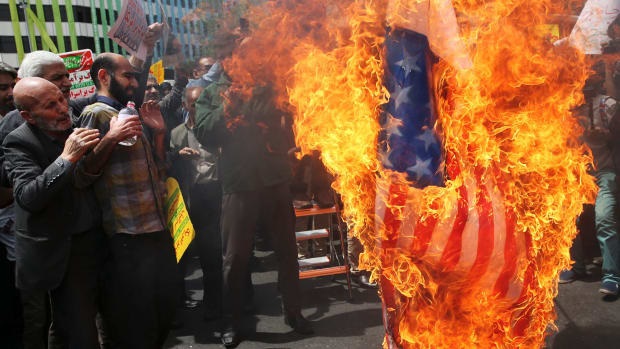Mohammad Javad Zarif, a devout and faithful servant of the Islamic Republic, was always a suspect quantity in the eyes of the West – and yet it is somewhat odd that Iran’s foreign minister, who tendered his resignation Monday, was even more suspected by the radicals in his own country.
Zarif just had too many friends and admirers among the unbelievers abroad. He was too worldly. His English was too good – it was perfect, in fact, wonky, witty, and unnervingly fluent, albeit spoken with a disarming lisp, a facility honed during Zarif’s graduate studies at the Josef Korbel School of International Studies at the University of Denver. He was too convivial, often inviting Western interlocutors and journalists into his spacious office at the United Nations, where he would serve them sweet tea and luscious Persian pistachios.
Zarif was also a masterful diplomat, a man who knew how to work every advantage for his isolated country, and yet who found himself defeated in the end not by the resistance of his own countrymen but mostly by the Westerners who could not see their way to finding a middle path with him. And nothing hurt Zarif more than the painstakingly negotiated 2015 nuclear deal that he, more than anyone, helped to orchestrate with the promise to Iranians of a way out of the West’s crushing sanctions – and yet that crushed him in the end.
Read the article by Michael Hirsh in the Australian Financial Review.

